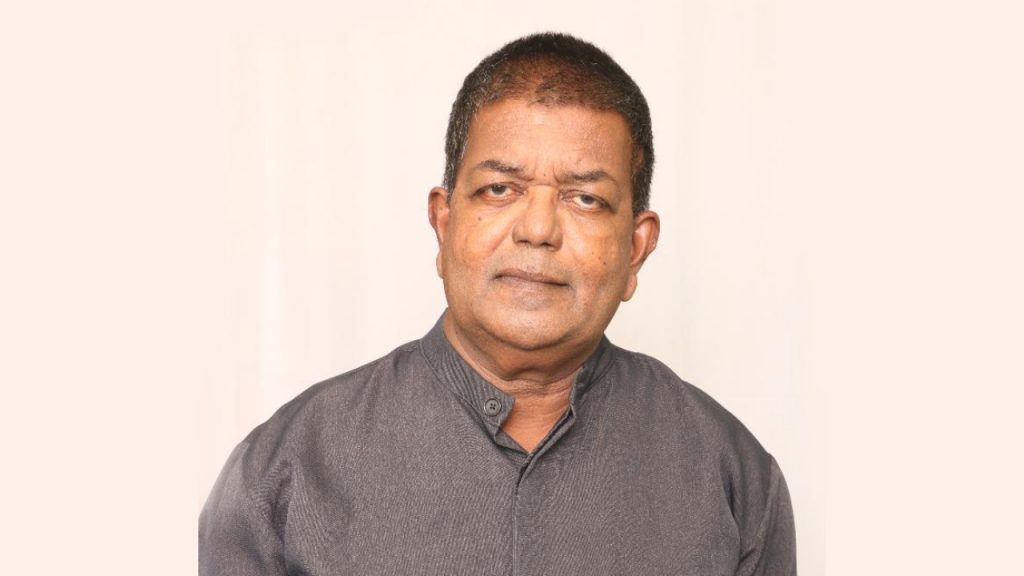Swami Prakashananda said that democracy is the reason why so many mandirs are filled with conflict or koochur. He said that he has been invited to resolve conflicts in several mandirs but left in frustration.
Swamiji said that Hinduism is run by the gurus who are supposed to have the final say on matters. To subject every idea to a vote only generates conflict. Swamiji was officiating at an ongoing 21 Night Ramayan Yagya sponsored by the Hanuman Darshan Mandir of Bamboo No 3, Valsayn.
Democracy splits the membership down the middle with the defeated section resolving not to step foot inside the mandir again. Swamiji related that one devotee from a defeated slate was going to the mandir when he was accosted by another: “Are you still going to that place” and the devotee responded: “Yes. I am going to serve my Bhagavan.” Swamiji stressed that that should be our main motive for going to the mandir – to serve Bhagavan.
In India, the major Hindu religious bodies are headed by gurus, and that leadership is handed down to serve in the respective mandirs. The devotee, therefore, has no right to question the choice of priest in the mandir or the decisions he makes. When a devotee comes to worship, the pandit would usually make the offerings to the deity with the chanting of the appropriate mantras.
In Trinidad the Hindu has the latitude to choose a family pandit for pooja, wedding, funeral etc. Hindu worship is not centralized as in a mosque, church or synagogue but in the home. Therefore, a Hindu residing in Chaguanas has the freedom to invite a pandit from Penal to conduct his pooja. Also, he can participate in a mandir in another district with no compulsion to attend the mandir in his neighborhood.
A devotee complained to the late Sat Maharaj, Secretary General of the Maha Sabha, that her pandit was charging her family too much money to conduct a pooja. Sat advised her to find a pandit who is more affordable. That is the freedom that Hindus enjoy in comparison to other denominations where the devotees must accept whoever and whatever is handed down to them.
Searching for the Divine or Truth is central to Hindu worship. In the mandirs today, pressure is placed on the executive to have programs like sports, outings, film shows and other activities to attract attendance. How much of these ‘extra-curricular’ activities should be encouraged should be debated and established. However, worship of the Divine should remain the central trust of the mandir.
Would it be better to have institutions outside the mandirs to provide these ‘extra-curricular’ activities, thus giving the guru or pandit absolute control over the direction of the mandir? For example, devotees being told by a guru that hosting a fashion show is not the focus of a mandir may lead to a revolt by some, thus leading to open conflict and divisions among the rank and file.
If the mandir has to focus on worship with the guru having the final say, then it would be necessary to float other institutions to host such programs. For example, if there is an active sports club in the village, would it be necessary for the mandir to develop a coaching clinic for aspiring athletes? The reality is that there is a need for institutions to serve the diverse needs of the people. To invade the mandir and demand it carry out programs outside of worship may be asking for too much, thus resulting in conflicts.
A fair question to ask is to what extent the repeated defeats of the Hindu-based political party have resulted in undue blame on the Hindu mandir. For example, Bhadase Sagan Maraj, though not a candidate in an election, was blamed for the defeat of the opposition. Is it that Hindus are now seen as a punching bag after a political defeat? The UNC, though having a strong Hindu base, is not a Hindu party as it continues to attract cross-ethnic support from the wider society. Despite this, when the party is defeated in an election, a few detractors chose to label it “Hindu Cabal.”
Hindu professionals are failing to play their roles in society. They are contented to function within their professional portfolios while remaining distant and divorced from the Hindu community. Dr Vijay Narayansingh, Anand Ramlogan and Dr Dilip Dan are only a few that boldly identify with the Hindu community. This ‘Kumbhakaran utopia’ is definitely going to rebound with dire consequences. Unfortunately, as the scholars in the community focus on the sciences, they remain ignorant of their history and hence this illusion.
The mandirs and the pandit have their roles and only so much should be expected of them. It is time to call on the other professionals – lawyers, doctors, academics, etc. – to pull their weight so that their interests and that of the community and the nation will be collectively safe-guarded. Should they not, there will be another Burnham or Idi Amin knocking at their door.
